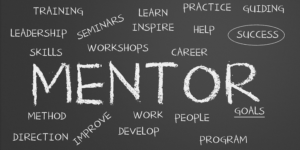
(Washington D.C. – April 30, 2024)
“What’s in it for me…?”
We’ve all heard this phrase before.
We’ve all asked this phrase before.
In fact, this phrase is so ubiquitous that it has been reduced down to a very common acronym: WIIFM (pronounced wiff’em).
As our nation stands on the shoulders of a record-setting fiscal year, with $178.6 Billion being awarded to small and women-owned businesses across rural, urban, under-advantaged America, we have the opportunity before us to build further upon this, hold the line here, or regress to a different vantage point.
To me, it would seem the logical, most advantageous choice would be to continue on this trajectory. In fact,
the President’s goal is to increase that $178.6B number (which represents 30% of all contract dollars awarded
to American companies) up to 50 percent.
Specifically, in order to accomplish this, in part, it would take the proactive involvement of America’s bigger businesses to take some of these smaller companies under wing and mentor them.
So as I listened to Michael Negron, of the White House National Economic Council, explain these dynamics to me, I began to see a very healthy symbiotic relationship potential taking shape, for the benefit of the whole of the American economy.
And that sounds great, but mentoring can be such a one-sided relationship.
Mentoring is all about the giving, giving, giving
of one well-to-do entity to a lesser-fortunate. In that sense,
the relationship can almost feel like usury, right?
Well, perhaps.
However, small business numbers like the ones announced in this Biden-Harris Administration economic impact report indicate great signs for the American economy overall. — As President JFK once remarkably noted, “A rising tide lifts all ships in the harbor.”
Our country’s economic tide can be a booster for all companies involved.
So the question then is, WIIFM?
To put it more plainly, as a big business, how do I re-envision this relationship so that it does not feel like I’m giving handouts to those less deserving, who simply have not put in the hard work, effort, and time to achieve a certain status, but who now want to siphon off of mine? — This is a very fair, tough, and real set of questions to ask.
This is where emotional intelligence kicks in.
In this sense, the big business sits in the seat of the king. And so, we approach emotional intelligence through the eyes of a king, for history is replete with examples of monarchs who prospered, whose dynasties lived on, those who have come to utter ruin, and those who have great wealth, vast riches, and lasting impact.
There’s a theme throughout history that seems to show strong correlation between those dynasties that were emotionally intelligent in their approach to their subjects and longevity. Tyrants, dictators, autocrats seem to be strongly correlated with the term coup.
Benevolence, however, like President Kennedy pointed out,
comes replete with its own WIIFM, for us all.
My name is Rodney C. Burris. I am the White House Correspondent for BMORENews, a media outlet in Baltimore where our slogan is, “the news before the news.” This column will look at the events impacting our nation and filter them through the lens of Emotional Intelligence theory. Our goal will be to inform, to make aware, to facilitate connectivity, and then to increase the overall understanding of ourselves as a collective as we take a deep dive into the topics affecting our Emotionally Intelligent Nation.

